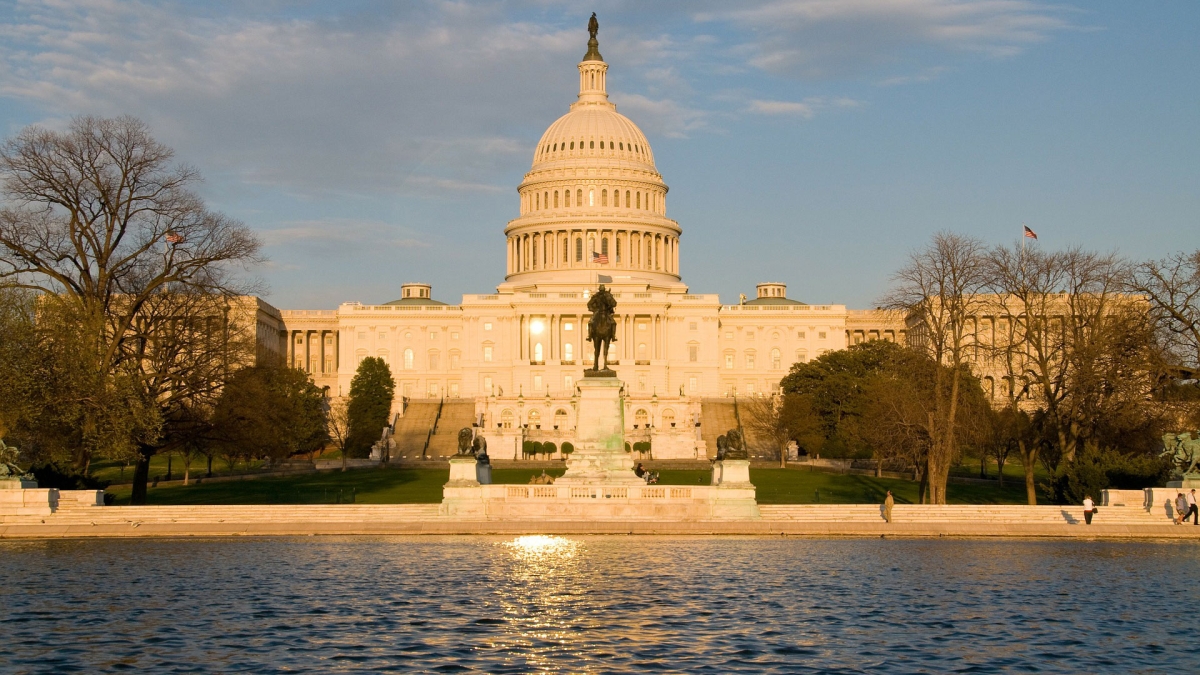Dancing on the debt ceiling
ASU business professor breaks down issue facing Congress as it reconvenes, why it's not same as balancing your family's budget

Congress reconvenes Tuesday to resume the work of running the government, and one of the most important — and controversial — issues it will face is the debt ceiling, when members will have to vote on whether to increase the country’s borrowing limit.
The two-week government shutdown in October 2013 was partly related to partisan differences on whether to raise the debt ceiling, with Republicans opposed unless deep spending cuts were enacted.
Dennis Hoffman, director of the L. William Seidman Research Institute at the W. P. Carey School of Business at Arizona State University, breaks down the debt-ceiling issue and explains why you can’t compare the $4 trillion federal budget to running up your credit card.
Question: What is the debt ceiling?
Answer: Congress spends more than it takes in in tax revenue, and it has for years. So it has to borrow to make up the difference. And by statute in Congress, there is a borrowing limit set. So if you’re at whatever the limit is today and you agree to borrow that amount of money, it’s generally agreed upon that you’ll have to borrow more to finance the deficit. So they set a ceiling of 10 percent or so above the current debt level. When you start reaching the limit you have to revisit the issue. In September, we’ll be at that point.
This happens every year or every other year, and historically it happens without much fanfare. Recently, there’s been more controversy because we have a number of congressmen that ran on a platform saying that they would never raise the debt ceiling. If that’s what you run on, it makes it difficult to garner the votes of those people. As more people run on that platform, it’s become more difficult to raise the debt ceiling.
The irony is that the decision in Congress to spend dollars and to raise dollars in tax revenue has already been made. It’s pure arithmetic that you’ll run into a debt ceiling. So if you’re concerned about the debt ceiling, you should be more concerned with either raising taxes or cutting spending before you raise the debt ceiling.
Q: So by consistently raising the debt ceiling, is the government acting like a person who keeps using credit cards to pay bills?
A: That’s said all the time, and some politicians put fuel on that fire by saying, “If my family has to balance its budget, why doesn’t the government?”
The simple answer to that is that a typical household budget has a finite beginning and a finite end. They have to balance that over their lifetimes or go into debt.
A government, especially a federal government, has the capacity to deficit spend. It’s made the choice to deficit spend. The alternative on the part of the federal government would be some pretty painful austerity. Although some folks claim they want that, I don’t there’s been a clear realization of what that would mean.
So we elected representatives who have chosen to run a deficit, and it is very clear that you can run a deficit for many decades as long as that deficit does not dramatically increase faster than the pace of overall growth in the economy. That’s in contrast to what would happen in a household.
Households serve individuals in the household, and governments are designed to service entire societies and to provide infrastructure investments and programs that provide for the future. It provides for a national defense and public safety. It’s an ongoing, living entity rather than having a finite beginning and end like a family budget does.
Q: What happens if the debt ceiling is not raised?
A: The first thought is, if you’re unable to issue more debt, conceivably we’re in a position where we have to default on existing debt. We have to tell our creditors that we can’t pay them when they show up at the door.
Realistically, we’re probably quite a ways away from that happening. What would happen in the short run is that Treasury Secretary Steven Mnuchin and his staff would scurry around to find short-term cash, raise funds and conceptually shut down some government operations to save dollars so we could continue to meet the debt obligations of the bond holders who have agree to purchase our debt.
I think it’s quite unlikely that the treasury would let it get that far. There would be a clamoring back to Congress to say, “Let’s make this happen.”
Q: What’s the political reality?
A: I think it’s reassuring that you have leadership in Congress that appears to be sending signals that they have no interest in engaging in a fight around the debt ceiling.
But politics could always intercede. You could get a group of far-right, conservative folks who say they would never raise the debt ceiling, and they could form an odd alliance with a group of Democrats who wants to see chaos ensue.
What we saw under Obama was a lot of obstructionism on the part of the GOP, and what we’re seeing now is a fair amount of obstructionism from the Democratic Party.
We’re hearing (Speaker of the House Paul) Ryan and (Senate Majority Leader Mitch) McConnell sending signals that they would like a fairly smooth ride through this. We’ll have to see if the rest of the folks in Congress and Trump allow this ride.
More Law, journalism and politics

School of Politics and Global Studies director's new book explores mass violence
Why do people commit atrocities and why are certain groups, including religious and ethnic, more vulnerable to large-scale violence? These questions are explored in a new book by Güneş Murat Tezcür…

ASU faculty contributing to improvement of Wikipedia
Many academics have a love-hate relationship with Wikipedia. While the website has information about almost anything you can imagine, the credibility of that information is sometimes suspect. Tracy…

ASU Law students gain vital experience through Los Angeles location
Students at the Sandra Day O’Connor College of Law at Arizona State University may be concentrated in the school’s downtown Phoenix headquarters, but they have more choices than ever when it comes to…